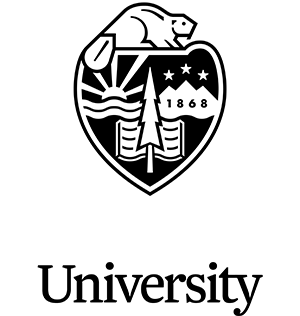2022 Accessibility and Inclusion Site Improvement Grant is CLOSED
Grant Program Summary
The Oregon State University (OSU) Extension Service Outdoor School program is committed to supporting equitable and inclusive outdoor school programs for Oregon’s students as described in ORS 327.390. To support and further invest in the outdoor school community’s efforts to provide outdoor school experiences that promote Equity, Diversity, Accessibility, and Inclusion (EDAI), the OSU Extension Service Outdoor School program is offering this 2022 Accessibility and Inclusion Site Improvement grant. These grant funds will support innovative improvements to 1) outdoor school site access, as well as 2) inclusion in the outdoor school experience for Oregon’s 5th and 6th graders.
We invite organizations with sites located in Oregon and providing outdoor school to students funded with OSU Outdoor School funds to submit applications to fund projects that reflect the Mission, Vision, and Values of the OSU Outdoor School program.
Applications should include at least one of the following site improvement components:
- Accessibility improvements identified in a recent site accessibility audit[1].
- Innovative improvements (beyond ADA standards) that focus on accessibility or inclusion barriers for special education students.
- Improvements to cultural responsiveness in curriculum or physical features.
- Improvements that increase the safety of an accessibility feature or improve the site’s ability to include all outdoor school participants safely.
To receive funding, all projects must include implementation of the OSU Outdoor School program’s Special Education and Accessibility Self-Evaluation Tool (SEASET). Applying organizations are permitted to implement the other Self-Evaluation Tools as well, but implementation of the SEASET is required.
QUESTIONS REGARDING PROJECT, APPLICATION, OR REQUIREMENTS
Questions may be submitted via email to Priscilla.Johnson@oregonstate.edu until September 16, 2022. The subject line should include the applicant (organization) name and “ACCESSIBILITY AND INCLUSION SITE IMPROVEMENT GRANT”. All submitted questions (anonymized as necessary) and their answers will be posted on the OSU Extension Service Outdoor School website by October 1, 2022.
2022 EDAI Grant Question and Answers
FUNDING ALLOCATION/DISBURSEMENT
Once a grant has been approved, a contract will be sent for signature through DocuSign. The Grantee is responsible for assuring that their email system will accept OSU’s emails via DocuSign and that the organization’s grant manager will respond to the request for signature.
Grantees will submit an Initial Approval Request after the contract has been executed. The payment requested at this time is intended to permit project work from the time of grant execution until the first annual report period starts (April 1). Remaining disbursements will be requested annually after the grantee’s annual progress report (due on April 1 of each year) is approved.

DELIVERABLES AND REPORTING
Approved Grantees are required to submit annual progress reports on or before April 1 of each year, and a Final Report within one month of project completion. All reports will be to the Outdoor School program office using the same online system used to apply for the grant.
Progress Report
By April 1 of each year, Grantees must provide a Progress Report which will request:
- Name of each approved project task (regardless of progress).
- Estimated percent of work completed (to date) for each task.
- Description of the activities completed (to date), as well as set-backs, successes, or changes to the scope for each task.
- Description of your plan of action for each task prior to the next April 1 annual report.
- Amount of the task budget needed to accomplish this work.
- Upload invoice for the total amount needed (with a line item for each task) to support the work scheduled in the next year.

Final Report
Within one month of the scheduled end of their project, Grantees must submit (using the online grant management system) their final report. The final report will ask:
-
- How did the project meet the identified need and how have you communicated this to those who helped you identify the need?
- How did you meet (partially or fully) the intended overall outcome of the project and what are/will be the current and future benefits to outdoor school programs and students?
- Fiscal Closure
- Name of each approved project task.
- Describe how the task’s completion helped meet your overall project outcome.
- Summarize all task activities, as well as set-backs, successes, or changes to the scope for each task.
- Are you requesting a final disbursement of funds?
- If yes, how much?
- Upload an invoice for the total final disbursement requested with line items for each task.
- Copies of receipts and invoices may be requested upon review of the final report.
- Certify matching/in-kind contributions.
- Name of each approved project task.
- Describe the result (positive or negative) of your interactions with project partners.
- Describe how this Project addressed (successfully or not) the obstacle(s), barrier(s), or areas for growth you identified in your application.
- Self-Evaluation Tool Results
- Describe the organization’s improvements to equity, diversity, accessibility and inclusion through implementation of the SEASET and any of OSU Outdoor School’s other Self-Evaluation Tools implemented for this project.
- Sustainability Results
- Describe your progress (success or failure) at making this work sustainable within your organization.
- Student Equity Results
- Describe how the student identities you identified in your application are being or will be positively impacted by the work completed for this project.
- Describe how you worked with members of the communities selected in your application and how working with them impacted the project.
- Budget Summary
- Describe budget variances or changes and why they were necessary for or beneficial to the overall project.
Please note: The OSU Extension Service Outdoor School program office (or their designated representative) reserves the right to request to attend or observe professional training sessions and/or tour construction sites at any point during the application review or grant implementation process.
ALLOWABLE EXPENSES
Materials and Supplies
Consumable items purchased by Grantee and used during the completion of the project (including training materials and/or construction supplies, such as lumber, concrete, and gravel). Materials purchased before grant approval should be included in the budget as match or in-kind contributions. Grantees cannot purchase materials to stock up for projects beyond the approved scope of work. Costs for materials provided by construction contractors, facilitators, consultants, or contracted trainers should be included within their contract in the Contracted Services category.
Indirect Costs
Overhead or administrative costs that cannot be readily identified to a specific project or function but are incurred by an organization (e.g., facilities, rent, administrative time, electricity, and telephone). Applicants can request up to 10% of the proposed contracted budget with justification. Grantees are not required to submit receipts for indirect costs within their grant reports.
GRANT EXCLUSIONS AND RESTRICTIONS
All funded projects must include the use of the Special Education and Accessibility Self-Evaluation Tool (SEASET) (available on the Outdoor School website).
Funding cannot be used for previously completed work, fundraising events, religious activities, deficit funding, lobbying, the purchase of equipment, construction machinery/heavy equipment, vehicles, job shacks/mobile office units, real estate, property, or the construction of capital improvement projects (new buildings). Equipment is defined as nonexpendable items with a useful life beyond the project and with a per unit cost of more than $2,500. If your project requires the purchase of equipment related to accessibility, please contact Priscilla Johnson (priscilla.johnson@oregonstate.edu) prior to submitting your application to receive authorization to include equipment.
Construction and improvement projects may include support for in-progress projects if the original project start date was July 1, 2022, or later. All grant funded tasks must be completed by May 31, 2025

